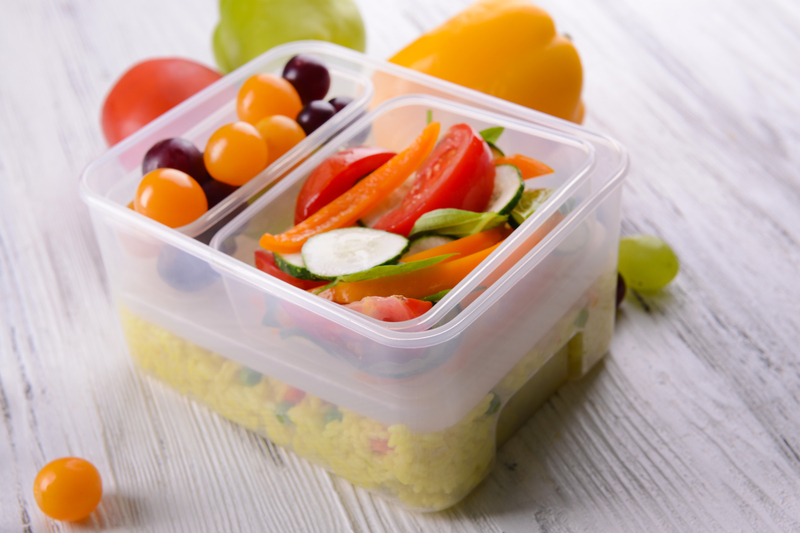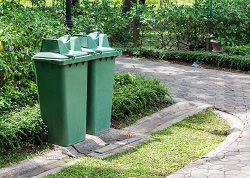Practical Tips for a Waste-Free Household
Posted on 09/09/2025
Practical Tips for a Waste-Free Household
Want to live more sustainably and save money at the same time? Adopting a waste-free lifestyle in your household is an impactful way to protect the environment, reduce clutter, and foster mindful consumption. This comprehensive guide offers practical tips and actionable ideas for creating a waste-free household that is both convenient and rewarding.
Why Choose a Waste-Free Lifestyle?
Our everyday choices--what we buy, use, and throw away--contribute directly to landfill waste, greenhouse gas emissions, and environmental pollution. By striving for a waste-free home, you can dramatically lower your carbon footprint and inspire others to follow suit.
Benefits of a Waste-Free Household
- Environmental Protection: Minimize pollution and resource depletion.
- Cost Savings: Spend less by purchasing reusable products and buying only what you need.
- Clutter Reduction: Create a cleaner, less stressful living space.
- Healthier Living: Avoid exposure to harmful chemicals often found in disposable products.
Now, let's dive into actionable waste reduction tips for your household.

Adopt the 5R's of Zero Waste Living
- Refuse what you do not need.
- Reduce what you do need.
- Reuse, swap disposables for reusables.
- Recycle as a last resort.
- Rot (compost) biodegradable waste.
Keep these guiding principles in mind as you transform your household habits.
Waste-Free Kitchen Strategies
1. Shop Smart and Consciously
- Buy in Bulk: Bring your own reusable containers and choose bulk bins for pantry staples.
- Plan Meals: Make weekly menus and shopping lists to avoid overbuying and food waste.
- Choose Package-Free: Select fresh produce and goods that don't come in plastic wrappers.
2. Choose Reusable Alternatives
- Cloth Napkins and Towels: Ditch paper towels for reusable cloth versions.
- Beeswax Wraps: Replace single-use plastic wrap with sustainable beeswax sheets.
- Glass Containers: Use jars and containers for food storage instead of single-use plastic bags.
3. Compost All Organic Waste
Set up a countertop compost bin or an outdoor compost pile for fruit/vegetable scraps, coffee grounds, and eggshells. Composting can dramatically reduce your household waste while creating nutrient-rich soil for gardening!
4. Repurpose Leftovers and Reduce Food Waste
- Get creative with leftover ingredients and plan recipes to use them up.
- Store food properly to extend shelf life and prevent spoilage.
Waste-free kitchen routines help you save money, eat better, and waste less!
Waste-Free Bathroom Habits
1. Switch to Reusable Products
- Bamboo Toothbrushes: Replace plastic toothbrushes with biodegradable bamboo ones.
- Refillable Soap and Shampoo: Choose bar soaps or refill bulk liquid soaps and shampoos.
- Reusable Razors: Invest in a stainless-steel safety razor instead of throwaways.
2. Make Your Own DIY Cleaners
Household cleaning products often come in single-use plastic bottles. Instead, make simple, eco-friendly cleaners with ingredients like baking soda, vinegar, and lemon juice. Store in reusable spray bottles for a truly waste-free bathroom.
3. Low-Waste Personal Care Routines
- Use washable cloths for makeup removal and facial cleansing.
- Opt for menstrual cups or reusable pads instead of disposable products.
Waste-Free Cleaning Tips
1. Bulk and Concentrated Cleaners
- Buy cleaning products in bulk or as concentrated refills to reduce packaging waste.
- Choose multi-purpose cleaning solutions to simplify your routine and reduce the need for multiple products.
2. Switch to Reusable Cleaning Tools
- Use washable microfiber cloths instead of paper towels for surfaces and spills.
- Choose reusable mop pads over disposable ones.
- Old t-shirts or towels can be cut up for rags.
Waste-Free Laundry Room Ideas
1. Eco-Friendly Laundry Products
- Use laundry soap bars or buy powder in recyclable cardboard boxes.
- Opt for wool dryer balls instead of single-use dryer sheets.
2. Wash Mindfully
- Wash full loads to conserve water and energy.
- Air dry clothing when possible to reduce electricity use and prolong garment life.
Green Living Room Essentials
- Decorate Sustainably: Purchase secondhand furniture and decor items, or repurpose items from other parts of your home.
- Upcycle and Repurpose: Get creative with DIY projects using materials you already have, such as turning glass jars into vases.
- Avoid Disposable Batteries: Switch to rechargeable batteries for remote controls and small devices.
Streamline Your Shopping Habits
- Bring Reusable Bags: Always carry reusable totes, produce bags, and containers for shopping.
- Support Local: Shop at farmers markets or zero-waste stores that encourage bringing your own packaging.
- Buy Less, Choose Well: Focus on quality over quantity to reduce future waste generation.
Waste-Free Approaches to Clothing
1. Choose Quality Over Quantity
- Invest in well-made, timeless clothing pieces that will last for years.
- Buy secondhand from thrift stores or online resale shops to extend the life cycle of garments.
2. Repair and Upcycle
- Learn basic sewing skills to fix clothes instead of discarding them.
- Repurpose old textiles into cleaning rags, quilts, or craft supplies.
Waste-Free Pet Care
- Buy Pet Food in Bulk: Reduce packaging by purchasing large quantities or from bulk bins when available.
- DIY Pet Toys: Make toys from old t-shirts or socks rather than buying new plastic ones.
- Sustainable Pet Waste Disposal: Look for compostable baggies and use biodegradable cat litter.
Host Waste-Free Events and Gatherings
- Use Real Dishes: Opt for reusable plates, cups, and utensils for parties and get-togethers.
- Send Digital Invites: Avoid paper invitations by using online invitations and RSVPs.
- Encourage Guests to Recycle: Label waste, recycling, and compost bins clearly for guests.
Additional Waste-Free Household Tips
- Opt-Out of Junk Mail: Register for services that remove your address from direct mail lists.
- Refuse Freebies: Politely decline giveaways or samples you don't need.
- Borrow Instead of Buy: Use lending libraries for books, tools, and appliances.
- Donate Unwanted Items: Give away things you no longer need instead of throwing them out.
- Educate Your Household: Get the whole family involved by sharing information and setting shared eco-goals.
Overcoming Common Challenges in Going Waste-Free
Pursuing a waste-free household is a journey, not a destination. Common roadblocks include lack of access to zero-waste stores, limited time, and initial setup costs. Address these challenges by starting small--pick one room or habit to change at a time, and seek community support through online forums and local groups. Remember, progress is better than perfection.
Saving Money with a Waste-Free Lifestyle
Embracing waste-free household tips doesn't mean spending more. In many cases, sustainable solutions lead to savings over time:
- Buying in bulk and cooking at home is less expensive than frequent takeout or single-use items.
- Reusable products (water bottles, bags, towels) pay for themselves after just a few uses.
- Repairing and reusing items reduces replacement costs.

Quick Start Checklist for a Waste-Free Home
- Carry reusable bags, produce sacks, and water bottles daily.
- Shop local and bring your own containers for groceries and bulk items.
- Compost food scraps and yard waste.
- Swap paper towels for cloths and napkins.
- Replace disposables with reusable alternatives.
- Plan meals to help prevent food waste.
- Recycle thoughtfully, and only as a last resort.
Conclusion: The Path to a Waste-Free Household
Transitioning to a waste-free household is a meaningful way to contribute to the health of our planet. By making small, intentional changes--from shopping smarter to reusing and repurposing what you have--you can substantially cut down household waste. Remember, there's no one-size-fits-all solution; adapt these waste-free living tips to fit your family's lifestyle and enjoy the process of discovering new eco-friendly habits. Every effort makes a difference!
Ready to start your waste-free journey? Begin with one habit or room, and expand your efforts over time. Celebrate your successes and share your experiences with your community to help inspire a broader zero-waste movement.
Less waste, more life--your waste-free household journey starts today.
```Latest Posts
Key Strategies for Effective Skip Hire Management
Unveiling the Plastics You Should Reconsider Using
Navigating the World of Hazardous Waste: What Qualifies as Dangerous

 020 3859 5580
020 3859 5580 020 3859 5580
020 3859 5580





 House Clearance
House Clearance Rubbish Collection
Rubbish Collection House clearance in London has never been easier, as Junk Removal Services can take care of your every need. From individual house junk...
House clearance in London has never been easier, as Junk Removal Services can take care of your every need. From individual house junk... With Junk Removal Services you can be confident that you’ll receive the most professional and affordable rubbish collection service within the London...
With Junk Removal Services you can be confident that you’ll receive the most professional and affordable rubbish collection service within the London...





